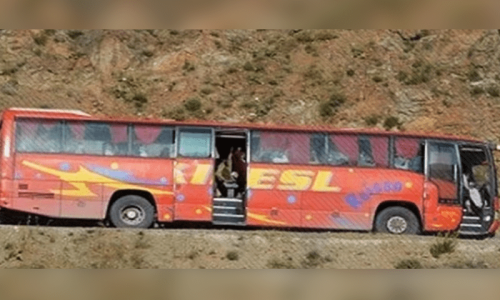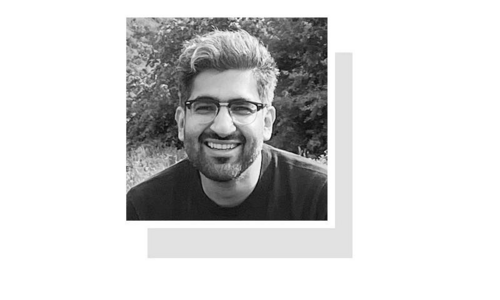
The one art form that is unequivocally loved across Pakistan is poetry. Hamd and nauha, qawwali, mushairas, ghazals set to music, lyrics of pop songs, Sufi poetry in shrines of saints, poetry written on rickshaws, buses and trucks, on the walls of dhabas — there is something for everyone. I am not referring to poetry that hides in books read by fellow poets, but the public sharing of poetry.
While all nations celebrate their poets, few have assimilated poetry into the very fabric of society, from politics to leisure.
Arabs held the poet in high esteem. From simple phrases or saj to rajaz, qitah and qasidah, the poet-inspired warriors belittled the enemy, recalled past glories and celebrated the romance of desert life. The poet was the most respectable member, sometimes leader, of the tribe. Poets were believed to have wisdom, judgement and a sense of history. Aswa or commercial markets developed into cultural fairs where an arbitrator, for whom a red tent was erected, was appointed to judge between the poets and poetesses of various tribes. The best poems were written in gold and hung in the Ka’aba known as the Mualaq’at. The Quran itself is persuaded by its eloquence. Poetry, focusing on subtle nuances, contributed to the development of language — 1,000 words for ‘sword’, 5,000 for ‘camel’ and specific words for eight stages of desert thirst. Muhammad Ahsan Shakoor writes, “Arab poetry became the archive of their history, the evidence for what they consider right or wrong and the principle basis of reference for most of their sciences and wisdom.”
Somalia is presented as a starving, war-torn nation. Less known is its identity as a nation of poets. Somali scholar Said Sheikh Samatar explains that oral poetry is central to Somali life, influencing culture and politics and was once the chief means of mass communication. Richard Burton wrote in 1864, “Somali society teems with poets.” The Dervish Movement was led by a poet who used his verse to unify people against the British colonialists. Defeat and new restrictions quietened the verse of rebellion. The dictator Mohamed Siad Barre used poetry to establish his authoritarian regime. Today, poetry is used to create peace between warring tribes, but is more romantic than revolutionary.
“The poet was the most respectable member, sometimes leader, of the tribe.
The Pakistani nation invariably turns to poetry to express the otherwise inexpressible. Poetry provides solace, humour, a platform to voice indignation, to call for justice and represent the voiceless. The poetic forms of ghazal and qasidah travelled from Arabia via Persia during the Muslim rule of India and became incorporated in Urdu and other regional languages. The emperors and nawabs patronised poets. Bahadur Shah Zafar, the poet king, held poetry gatherings in hs court. With great ceremony, a candle was placed before the poet whose turn was to recite the poetry. The Sufis developed poetry in vernacular languages. Char Bayt developed to inspire soldiers where lively competing groups accompanied poetry with duffs [tambourines]. Today, public mushairas, ghazal evenings and bait bazi (a competitive poetry game) are held. Religious devotion is expressed in qawwali, naats and nauhas. Cinema and pop music established new possibilities for poets. Political philosophy was encapsulated in the writings of poets such as Khushal Khan Khattak, Gul Naseer Khan, Faiz Ahmed Faiz and Habib Jalib. Feminism found a voice in Parveen Shakir and Fehmida Riaz. Political rallies develop their own poetic songs. Humourous cell phone messages start with “Faraz kehtay hain …”
Poetry invigorated the freedom movement. While many worked towards the creation of Pakistan, the national narrative presents it as the dream of a poet, Muhammad Iqbal.
Some years ago I asked Ishaq Khamosh, a Baloch poet and activist, what we could do to bring unity to Pakistan. His solution was to hold a multilingual mushaira!
Durriya Kazi is a Karachi-based artist and heads the department of visual studies at the University of Karachi
Email: durriyakazi1918@gmail.com
Published in Dawn, EOS, January 19th, 2020













































Dear visitor, the comments section is undergoing an overhaul and will return soon.